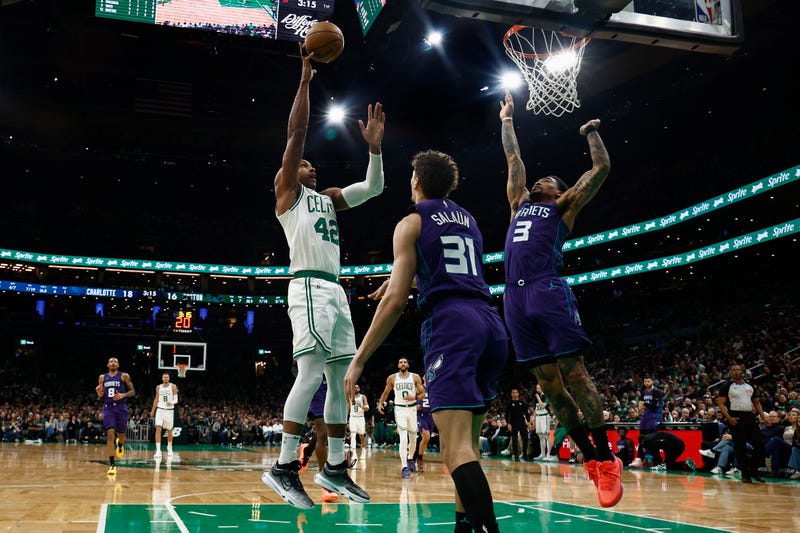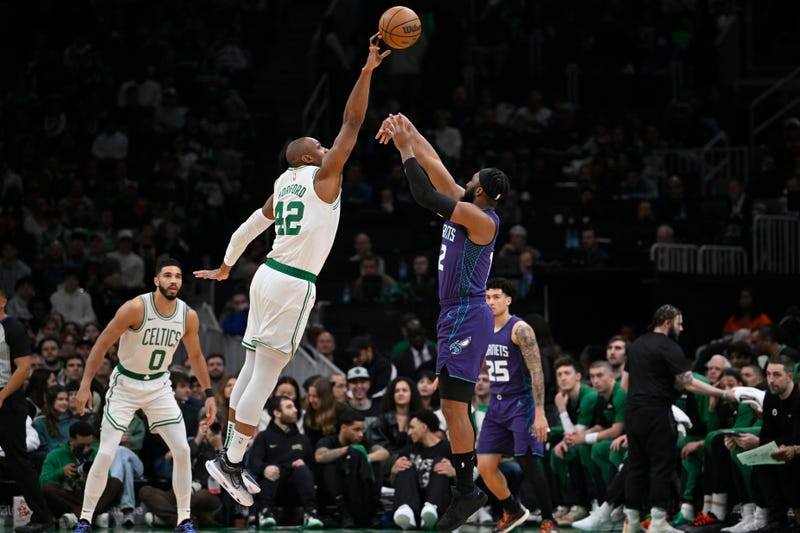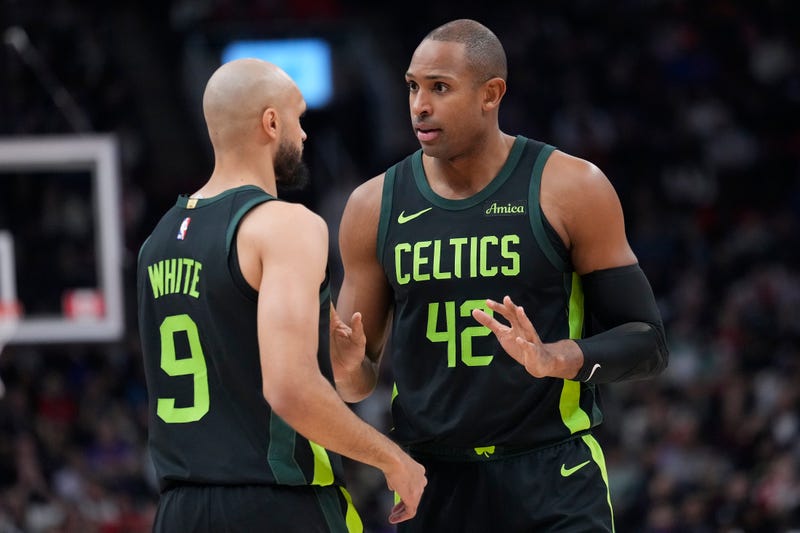When Charles Lee got his first NBA coaching gig as an assistant with the Atlanta Hawks over 10 years ago, Al Horford was entering his eighth season. He had already represented the Hawks at two All-Star Games and earned a third selection in Lee’s first year.
Flash forward a decade, after winning a championship in Boston last season as Joe Mazzulla’s lead assistant, Lee now has his first head coaching job with the Charlotte Hornets. And Horford, who appeared in all 19 of the Celtics’ playoff games (starting 15) on the way to that title, is still producing at a high level — which comes as no surprise to Lee.
“Not at all,” Lee said when asked if Horford’s production surprises him. “The way he shows up every day, the consistency, the passion, the love of the game and his teammates- I’m not surprised one bit. I foresee him continuing to go for a couple more years. The way that he takes care of his body and the way he’s now shooting it and evolving, the guy’s an absolute stud.”

Friday night was likely the final regular-season game of Horford’s 18th year in the NBA, and he capped it off with a 13-point, 11-rebound double-double — his seventh of the season. That’s more than double his total from last year (three), and he did it in five fewer games. The Celtics will finish +11.5 points per 100 possessions better with Horford on the floor in the regular season — the best mark among Boston’s top six (Derrick White, Jrue Holiday, Jaylen Brown, Jayson Tatum, and Kristaps Porzingis).
The average NBA career lasts between four and five years. It’s rare to see a player not only still contributing at age 38 but doing it at such an impactful level.
“A lot goes into it. Number one, just physically,” said Lee on Horford’s longevity. “The attention that he pays to his body, from a diet standpoint, from every day coming in and lifting, and his routines and the habits that he develops. He’s just so consistent with everything that he does for his body. Your mind has to figure out how to get locked in every game to give the effort necessary. I’ve always said during my time with him in Atlanta and in Boston that he’s one of the best game-plan-executing guys I’ve ever seen. He understands it to a tee, he follows it to the tee, and it’s pretty special.”

Horford is still an integral part of the Celtics’ success. He’s the glue that holds everything together, an essential piece of the puzzle—no matter what role he is in, whether off the bench or starting. Some nights, that shows up on the stat sheet. Other nights, it’s the little things that go unnoticed.
“Even at his age right now, the ability to switch, the ability to be in center field, I think that it’s just a willingness to have an open mind and do whatever is asked and whatever’s necessary in that situation,” said Lee. “It’s also an understanding of what you’re trying to take away and being fully bought into it. So I think that obviously, what’s laid in front of him has been really good by the coaching staff that he’s been a part of, and then he takes the ownership on himself.”
Horford is two years older than his head coach, Joe Mazzulla, and four years older than the next closest players, Jrue Holiday and Torrey Craig. Derrick White follows at an eight-year difference. When second-year wing Jordan Walsh was born in March 2004, Horford was preparing for his freshman year at Florida. Yet, you’d never guess the age gap by watching the games. Horford consistently brings a level of energy that rivals players half his age, and his teammates follow suit, matching his intensity and feeding off his inspiration.

By appearing in 60 games this season, Horford moved into the top 70 all-time in NBA games played. He’s seen just about everything the league has to offer — and through it all, one thing has never changed: the way coaches and teammates talk about him. Horford remains a steadying force, a respected voice, and the kind of veteran every team values.
“He’s able to communicate to the rest of the team to make sure that you’re executing at a really high level,” said Lee. “A lot of things go into it, physically and mentally, and then I think just his overall love for the game, his love for his teammates, and the love for competition. There’s a reason why he’s won two National Championships and an NBA Championship. The guy is a winner, and he understands how to impact running at a lot of levels.”
As Horford prepares for his 16th postseason run, he remains just as valuable as when he led the Hawks to the Eastern Conference Finals in Lee’s first season and during the Celtics’ two NBA Finals appearances over the past three years. As Boston looks to climb back to the top, Horford will once again be a key piece of the puzzle, and they will lean on his experience and big-game ability.
“Extremely important because you know what it takes. You know what it takes, physically and mentally, you’re going to deal with some adversity,” Lee said on the importance of Horford’s experience in the playoffs. “You’re gonna be up in a series, you’re gonna be down in the series. You’re gonna need to take away something from somebody in Game 1 that might differ from Game 2 and Game 3. He understands how the series is gonna change and evolve, not getting too high or too low emotionally, and whatever is asked for him for his role, he accepts that, and he’s gonna do it to the highest of his abilities.”

